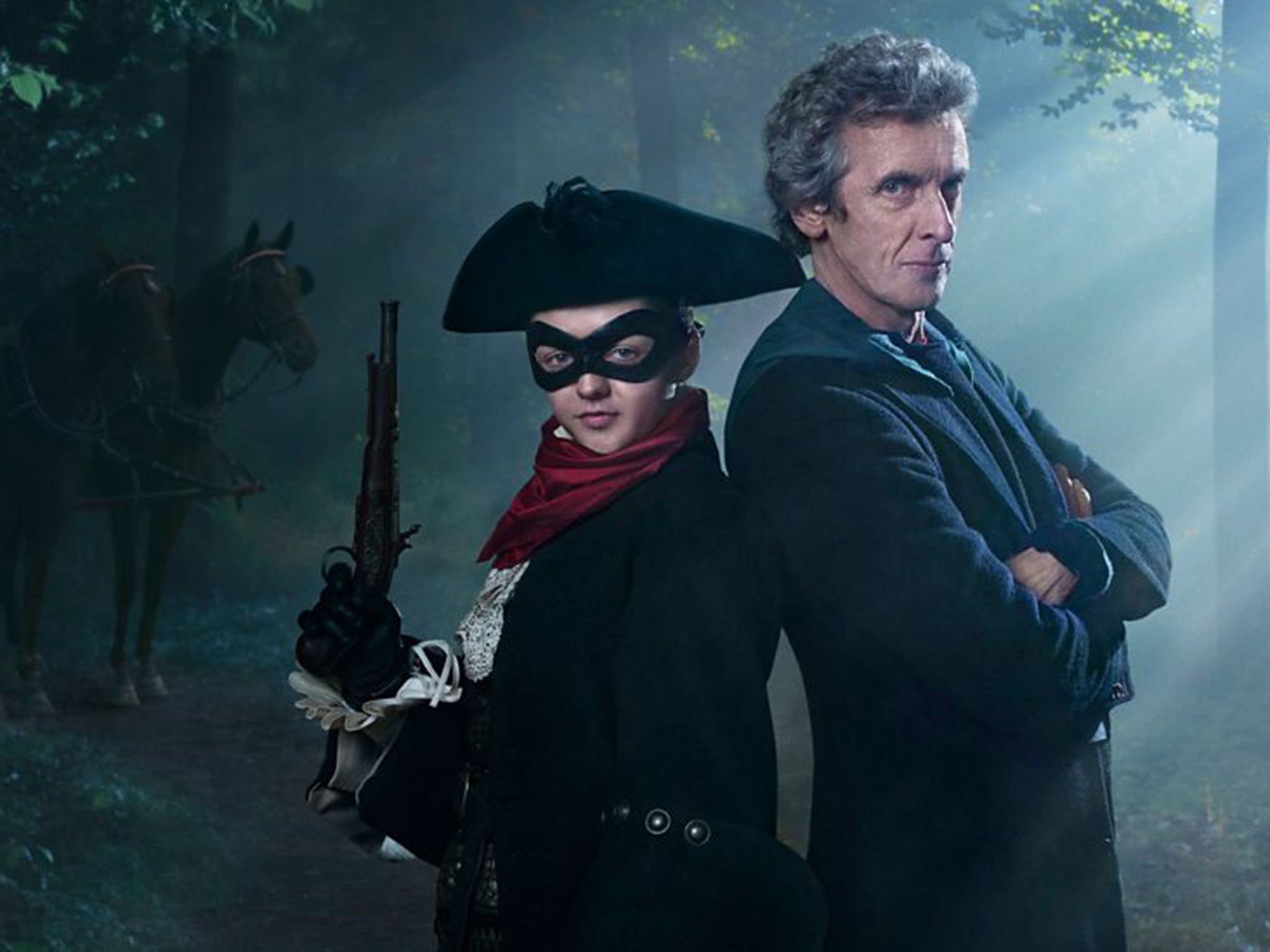Doctor Who – The Woman Who Lived, TV review: If this was an episode that revolved around characters, it was at the expense of the sci-fi subplot
The Woman Who Lived told us the tale of comedian Rufus Hound’s early life in the 17th Century, when he was naught but a bearded, quipping highwayman named Sam Swift

Your support helps us to tell the story
From reproductive rights to climate change to Big Tech, The Independent is on the ground when the story is developing. Whether it's investigating the financials of Elon Musk's pro-Trump PAC or producing our latest documentary, 'The A Word', which shines a light on the American women fighting for reproductive rights, we know how important it is to parse out the facts from the messaging.
At such a critical moment in US history, we need reporters on the ground. Your donation allows us to keep sending journalists to speak to both sides of the story.
The Independent is trusted by Americans across the entire political spectrum. And unlike many other quality news outlets, we choose not to lock Americans out of our reporting and analysis with paywalls. We believe quality journalism should be available to everyone, paid for by those who can afford it.
Your support makes all the difference.This week in Doctor Who we got an origin story nobody could have expected, and not only that, one worthy of the most convoluted superhero movie reboot. Yes, The Woman Who Lived told us the tale of comedian Rufus Hound’s early life in the 17th Century, when he was naught but a bearded, quipping highwayman named Sam Swift. Made immortal to foil a Thundercat invasion, it was only natural he should gravitate towards the entertainment industry some 250 years later, once it had got up and running and panel shows finally became a thing. Lovely work, Rufus – but at least let some scientists take a blood sample so we can have a look into that whole immortality thing you’ve been keeping to yourself, eh?
Levity aside, Hound makes another welcome additional to the increasingly long list of sterling guest performances in Who as the rum and risqué Sam Swift. He wasn’t the only one with decent lines to play with either – it was great to see Maisie Williams given a bit more scope to perform thanks to the evolution of Ashildr’s character. Last week she was stuck playing to type, but the plot of The Woman Who Lived centres around Ashildr’s transformation into a callous and caustic pragmatist, and how her immortality throws the Doctor’s actions and lifestyle into sharp relief. There was plenty of scope for electric confrontations between Capaldi and Williams, with the Doctor often coming off worse. But it wasn’t just a hard heart and a flintlock pistol that gave depths to Ashildr’s ongoing story – a trio of empty cribs at the height of the Black Death gave it a poignancy that was only bolstered by Williams subtle approach to the role.
As did the revelation that, while she never ages, Ashildr’s memory is all too human. She has forgotten many of the people who have shaped her life. Either that or she runs from the memories, keeping them bound in the pages of her library-sized journals and deliberately isolating herself so she may never feel the pain of loss again. The episode unashamedly suggests that memory and companionship are vital to compassion, something the Doctor learned long ago but Ashildr seems to be struggling with. Even to the end we weren’t quite sure what her motives truly are and what actions she will choose to take – it’ll be interesting to see if the Doctor crosses paths with her again.
And if this was an episode that revolved around characters, it was at the expense of the sci-fi subplot. MacGuffins abounded here, from a stolen jewel to a bad guy in the form of Simba’s wrong ‘un of a cousin. Whether it was a muddled Beauty and the Beast comparison or not, the extraterrestrial lion king didn’t really make much of an impression, either from a design standpoint or as a particularly interesting villain. His plot was so by-the-numbers it barely warranted a couple of lines of dialogue and the inevitable ‘I’m invading you after all’ turnaround was so predictable it veered on the schlocky. You wonder if it might not have been better to ditch the space kitty and keep everything else, have the antagonists be cultists or the Witchfinder General or whatnot.
That’s not to say the episode was bad – the good bits (chiefly Williams and her character) simply stood far stronger and made the under-developed sci-fi gubbins weaker by comparison. It’s almost as if Leandro was added because, after all, this is Doctor Who and some sort of alien monster is expected (which probably isn’t quite the case nowadays anyway). The mixture of an immortal warrior woman and death-defying alien technology has more than enough hooks to hang a good story from, so why not stick with the inherent strengths there and ditch the hokey monster of the week? He didn’t even get a decent send off, ultimately ending up getting vaporised by his own kind. Altogether now: It’s the ciiiiiiircle of life…
Join our commenting forum
Join thought-provoking conversations, follow other Independent readers and see their replies
Comments